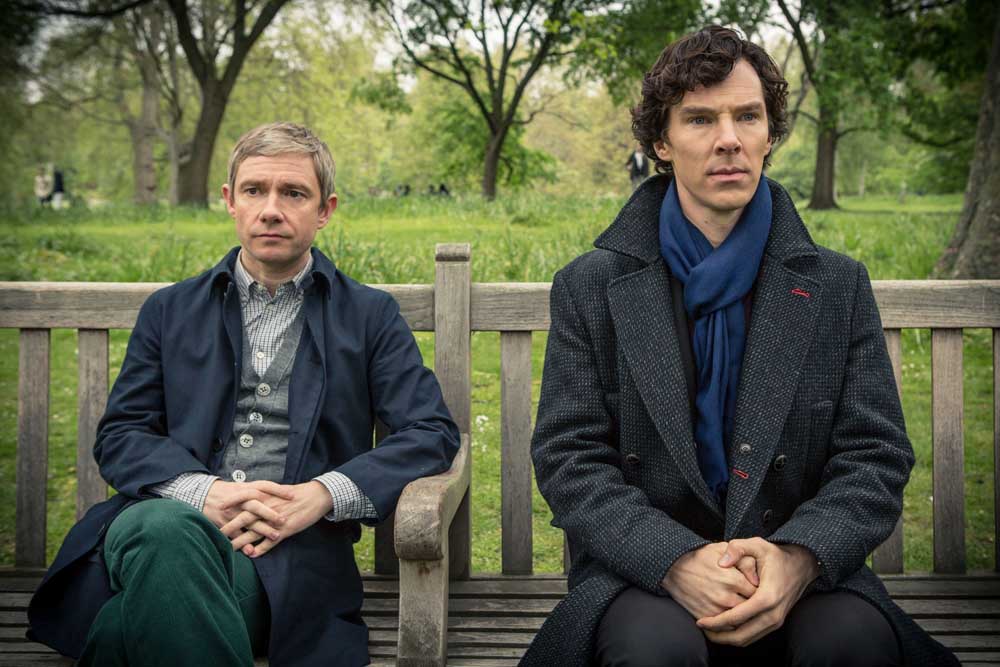Modern-day ‘Sherlock’ returns to PBS
Published 12:00 am Sunday, January 19, 2014

- Robert Viglasky / Hartswood Films / PBS via MCTMartin Freeman stars as John Watson and Benedict Cumberbatch as Sherlock Holmes in “Sherlock,” which returns tonight on “Masterpiece Mystery!”
For some PBS viewers, the return of the BBC’s “Sherlock” this weekend is more important than the new season of “Downton Abbey.”
They will be waiting with bated breath to find out how Sherlock Holmes (Benedict Cumberbatch) lived after his suicidal fall from St. Bartholomew’s Hospital in London at the end of last season’s “The Reichenbach Fall.” He left his close friend, Dr. John Watson (Martin Freeman), an Afghanistan war veteran, numb with disbelief and despair.
The new episodes will be broadcast in the United States on “Masterpiece Mystery!” “Masterpiece” is a co-producer on the new series.
In anticipation of the new series, PBS broadcast “Unlocking Sherlock,” a one-hour special by Steven Moffat and Mark Gatiss, the two men behind the contemporary “Sherlock.” Both were Holmes fans from an early age, and collaborated in creating the series. The special, which aired Jan. 12 and now is available on PBS.org, was a fascinating look at more than a century’s worth of Sherlock Holmes adaptations — television and screen, including the well-known Jeremy Brett series.
As a lure, “Many Happy Returns,” a mini-episode, was released Dec. 24. It makes clear that many who interacted with Sherlock in the past don’t believe he’s dead. While New Scotland Yard Detective Inspector Greg Lestrade (Rupert Graves) is convinced he’s dead, on an emotional level, he’s still not sure.
One person still in denial is Watson, who can’t believe that Sherlock is really dead.
One of the pleasures of this series is the snappy dialogue and rich character development. Sibling rivalry is taken to a whole new level between Mycroft Holmes (Gatiss) and Sherlock — and then there are their parents.
Another pleasure is the in-jokes.
For example, in the original Holmes stories by Doyle, Lestrade is only given a first initial: G. In “Sherlock,” his name is Greg, which Sherlock can’t remember, calling him Gavan or Graham.
In the two years since the first episode was broadcast in 2010, the “Sherlock” leads have become movie stars. Cumberbatch was villain Khan in “Star Trek: Into Darkness,” Julian Assange in “The Fifth Estate” and the voice of Smaug the dragon in “The Hobbit: The Desolation of Smaug.” Freeman is Bilbo Baggins in “The Hobbit.”
As “The Empty Hearse,” the first of the new three-episode series of “Sherlock,” deals with the aftermath of Sherlock’s “suicide,” it’s hardly a spoiler to say Sherlock survived.
His “death” now two years in the past, life has moved on for his friends, though in some cases only incrementally.
The apartment at 221B Baker street is still intact since the landlady, Mrs. Hudson (Una Stubbs), couldn’t bear breaking it up. Sherlock’s enigmatic and brilliant brother, Mycroft, is still deviously working for the British government.
Watson has a job, a new apartment, a girlfriend and a moustache, but is still emotionally numb. What he really wants, as he says in “Many Happy Returns” to Sherlock, is “you can stop being dead.”
That his wish comes true is only the beginning of the story.






